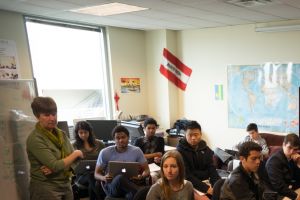Since 2012 The Carter Center has analyzed open-source information related to the Syrian conflict with the goal of assisting mediators and conflict responders. Our project aims to build a digital platform that will visualize this data in a way that informs about the Syrian Conflict and helps achieve conflict resolution and peace. Our focus is on providing maximum flexibility in how the data can be visualized using a dynamic selection of date range, region, conflict event types, and groups. This level of granularity will allow mediators to focus on the data that is most relevant to them. We have created a dynamic and interactive event map which allows users to view all conflicts over a specific period of time, drill down on event details, and apply additional filters to maximize the impact of this visualization. We expect it will significantly improve our user's ability to gain understanding from this conflict data, and ultimately enhance their capacity to work towards peace.

The Technologies and International Development Lab at Georgia Tech researches the practice, the promise, and the peril of information and communication technologies (ICTs) in social, economic, and political development. We study the risks and rewards of ICT systems for people and communities particularly within Africa and Asia. We explore issues of rights and justice in a digital age. And we examine new forms for inclusive innovation and social entrepreneurship enhanced through digital systems.
The T+ID Lab is an interdisciplinary community bringing together computer and social scientists with design and policy specialists. We collaborate directly with stakeholders outside of the Lab to critique technologies, invent new ones, and research how and why (or why not) ICTs can serve as a tool to empower, enrich, and interconnect.


